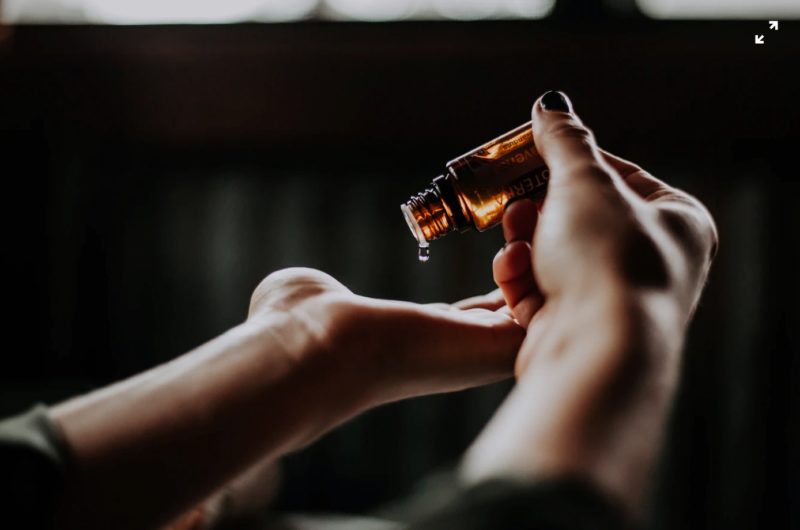Can CBD really help you? Here’s all you need to know about the amazing benefits of CBD.
CBD’s sudden emergence into the mainstream media has led it to be one of the buzzwords of the decade. Suddenly, everyone seems to be interested in CBD (a term often generalized as medical marijuana) and its health benefits. While research is still in its early stages, the plethora of CBD’s alleged benefits are making waves in the alternative treatment industry. From pain management to treating sleep disorders, what are the other benefits of CBD?
First Things First: What’s CBD?
Cannabidiol, or CBD, is a chemical found in marijuana and plants. CBD is one of two major cannabinoids found in marijuana plants – the other being the infamous delta-9-tetrahydrocannabinol or most commonly known as THC. THC is known to be the psychoactive component of marijuana that gives off the “high” or induced happy feeling often associated with the plant.
CBD is a cannabinoid that is still a considerably new product in the market. Its potential benefits have both been proved and disproved by the emergence of various studies trying to credit and discredit CBD-based drugs. CBD can be used in the form of oils, creams, lotions, shampoos, pills, or gummies. Because of its non-psychoactive property, CBD has become a popular and alternative option for people trying to fight mental disorders, epilepsy, PTSD, sleep disorders, and chronic pain.
Wondering what you can get from using CBD? Let GetWell walk you through 7 amazing benefits of CBD and CBD oil!
1. Epilepsy Treatment
At present, the only CBD-based drug proven by the U.S. Food and Drug Administration (FDA) to be effective is a drug called Epidiolex. According to RxList, Epidiolex is a drug dedicated to the treatment of seizures associated with epilepsy. Clinical trials of Epidiolex on patients struggling with Lennox-Gastaut Syndrome (LGS) and Dravet Syndrome (DS) have both shown promising results with patients responding well to the treatment. The U.S. FDA has also stated that Epidiolex’s effectiveness was studied in three randomized, double-blind, and placebo-controlled clinical trials involving 516 patients. Generally, the patients have responded well to the Epidiolex treatment and have successfully reduced the occurrence of seizures in epilepsy patients.
2. Reduces Nausea, Migraines
In today’s fast-paced world, nausea, migraines, and other types of headaches are part of modern-day stresses. With its calming effects and anti-emetic properties, CBD oil can help relieve your headaches as a natural relaxant. CBD has also been found to be a healthier as opposed to painkillers which are known to harm the liver.
According to Dr. Stephen Silberstein, in an article published by the American Migraine Foundation, while CBD currently does not have extensive scientific evidence or an ample amount of controlled clinical trials to refer to, it is still perfectly reasonable to be used as a viable topical option for patients with joint and muscle pain associated with migraine. Potentially, CBD and CBD oil have shown promising results in its isolated state in trials for migraine treatment.
3. Aid in Cancer Treatment
You might be scratching your head and thinking how CBD could possibly help in cancer treatment. If you have been keeping up with the news, CBD as complementary medication in cancer treatment has been one of the movements that have shot CBD into mainstream media.
The National Cancer Institute has performed several controlled clinical trials focusing on cannabinoids and its potential to alleviate chemotherapy-induced nausea and vomiting. The trials showed promising results but more controlled clinical trials are needed to strengthen the validity of these findings. On the other hand other types of man-made cannabinoids like dronabinol and nabilone have been found to be helpful in reducing nausea and vomiting linked to chemotherapy.
Another drug, nabiximol, has shown potential in helping people with cancer pain after strong pain medication fail to alleviate pain. It has also been helpful in every single clinical trial, however, no conclusion on its supposed benefits have been reached as of yet.
4. Pain Management and Reduction
Throughout history, cannabis has been used for medical purposes across the globe. With the effects of CBD breaking out in the forefront of alternative medicine in recent times, the main focus has been on pain management and alleviating chronic pain. A study from the European Journal of Pain has shown that the external application of CBD (on skin) can assist in easing pain and inflammation due to arthritis.
Additionally, the Center for Disease Control and Prevention estimates that 20.4% of adults in the U.S. experience chronic pain and 8.0% of those adults in the U.S. experience high-impact chronic pain. As a direct result, healthcare costs are skyrocketing for people experiencing chronic pain especially after that pain has been found to be linked to a variety of physical and mental disorders. With rising healthcare costs, more and more people are looking for a more affordable solutions for their pain management, with CBD being the most popular option.
A recent study by scientists Jamie Corroon and Joy Phillips about the medicinal benefits of CBD claims that out of the 62% of people who use CBD for medical purposes, most use it to manage chronic pain in illnesses such as joint pain and arthritis. Despite CBD becoming legal in the U.S. only recently, the demand for CBD has been steadily increasing as it provides an affordable and relatively safe treatment for chronic pain.
5. Anxiety and Depression Treatment
The Anxiety and Depression Association of America (ADAA) claims that while there is evidence that CBD may be a useful treatment for a number of medical conditions, there is still insufficient information about its effects on patients experiencing anxiety and depression. Simply put, there just haven’t been enough properly controlled clinical trials to bolster CBD’s position as an alternative treatment for mental disorders. However, that does not mean that CBD cannot help people going through anxiety and depression.
Even though the benefits of CBD (and other cannabinoids) still need further scientific backing, it is important to understand that the possibilities are still there. A more recent study by Frontiers in Immunology concluded that CBD has anti-stress effects which may reduce depression-induced stresses. In addition, the use of CBD has also been found to affect the brain’s chemical receptors in responding to low serotonin levels. Low serotonin levels have been linked to different cases of depression and is considered as one of its many symptoms.
6. Great for PTSD
As CBD continues to gain more traction, governments around the world are conducting more and more clinical trials to deem it fit for medicinal use. CBD is now also being studied as a viable treatment for Post Traumatic Stress Disorder (PTSD).
What is PTSD? PTSD is a mental condition that develops after going through a traumatic event. It does not matter whether you have experienced it or witnessed it, PTSD can still affect you in one way or another. Those suffering from PTSD can experience severe amounts of anxiety, stress, and uncontrollable thoughts often related to the experience that they have gone through.
Currently, PTSD is treated with psychotherapy and cognitive restructuring. However, recent research by Echo Connection, an organization focused on seeking therapeutic properties of cannabinoids (mainly CBD), claims that cannabis has been found to help PTSD patients manage their symptoms. The two major cannabinoids (THC and CBD) have shown a profound effect in the body’s endocannabinoid system – the system responsible for maintaining the body’s homeostasis or a balanced state of well-being.
7. Treatment for Sleep Disorders
CBD can help cure your sleep disorders too! A study by Harvard claims that while CBD has been touted for a wide variety of health issues, studies suggest that CBD may also help in falling asleep and improving the quality of sleep.
A 2019 research focusing on the effect of CBD on sleep and in reducing anxiety has found that 79.2 percent of respondents reported lower anxiety levels and 66.7% of respondents reported better sleep when using CBD.
PRO TIP: Talk to your doctor FIRST!
It’s easy to find information online about the alleged benefits of CBD to your body. However, there is no one-size-fits-all approach when it comes to CBD for medicinal purposes. Each of us respond to various types of substances in a plethora of different ways. A doctor is best-equipped to tell you how CBD can improve your current state based on specific needs of your body.

